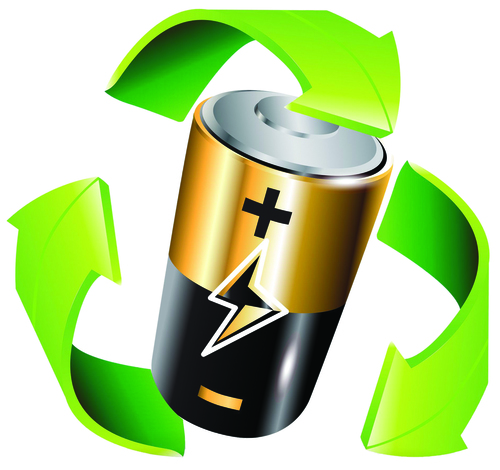Once, the world we live in was considered vast and wild, with almost unlimited natural resources. We now know this not to be so. Over the last half-century, new priorities have arisen, as awareness gradually increased toward full-blown understanding that the idea of “sustainability” has become a practical necessity in daily life. Attitudes about resources have changed as they’ve become scarcer. In the not-too-distant future, we no doubt will gradually find methods to recycle greater numbers of the items we use. Articles like this one in Fortune detail how central this issue has become for business.
Battery recycling is an important part of this picture. We recycle batteries for a number of reasons. The most important reason is to keep toxic heavy metals in batteries from returning to the soil and waterways of the earth. Another vital goal is to maximize the utility of limited resources by reuse. Increased organizational stewardship and environmental awareness are both good for business and good for the planet. To sum it up simply, recycling is the right thing to do.
What Batteries Are Recycled?
Call2Recycle recycles almost all types of batteries, including Lithium Ion, Nickel Zinc, Nickel Cadmium, Nickel Metal Hydride, and Small Sealed Lead Acid. Call2Cycle now recycles single-use Alkaline and Lithium batteries also.
Some Statistics
When all collection sites, partners, and stewards are taken into account, Call2Recycle recycled nearly 14 million pounds (6.3 million kilograms) of batteries in 2017 in the United States and Canada, as reported in Recycling Today. This brings the battery recycling grand total of the organization to 144 million pounds, or some 65 million kilograms. New recycling options partially fueled these increased amounts. But Carl Smith, the Call2Recycle CEO and President, credited strong consumer efforts, commitment to change, and diligent collection partners and industry stewards as the most vital components of the increase.
Vermont was a leader in the United States, becoming the first state to require primary (single-use) battery producers to finance a collection and recycling program. This led to an increase of 14% in battery collections, and a grand total of more than 250,000 pounds of batteries recycled since the program’s inception in the state in 2016.
Similar good news appeared from Canada. Call2Recycle runs the stewardship programs in Quebec, Manitoba, and British Columbia, and supports efforts everywhere in the country.
What Does This Mean For You?
For one thing, it means recycling batteries has never been this easy or convenient. In the United States or Canada, almost everyone is within easy reach of a recycling drop-off, over 87% of folks within 10 miles. These spots generally accept most batteries listed above and/or used cell phones. Specific drop-off locations and batteries accepted near you can be found here. By working together, producers and consumers both, we can keep these batteries and other toxic wastes out of our landfills. We can help restore our birthrights of pure water and pristine land. Much has been accomplished, but much more remains to be done! Help Lead the Charge, on National Battery Day, with Call2Recycle on February 18th!
Jenna Mancinni has a passion for helping people understand and learn what it means to ‘lessen their carbon footprint’. She speaks publicly to grade schools and teaches kids the benefits of recycling and the importance of the phrase “reduce, reuse, recycle”. She also enjoys putting used products into her, one of a kind, art pieces.
